
Cola is a carbonated soft drink flavored with vanilla, cinnamon, citrus oils and other flavorings. Cola became popular worldwide after the American pharmacist John Stith Pemberton invented Coca-Cola, a trademarked brand, in 1886, which was imitated by other manufacturers. Most colas contain caffeine, which was originally sourced from the kola nut, leading to the drink's name, though other sources are now also used. The original cola drink by Pemberton contained an extract from the coca plant as well. His non-alcoholic recipe was inspired by the coca wine of pharmacist Angelo Mariani, created in 1863.

Irn-Bru is a Scottish carbonated soft drink, often described as "Scotland's other national drink". Introduced in 1901, the drink is produced in Westfield, Cumbernauld, North Lanarkshire, by A.G. Barr of Glasgow.
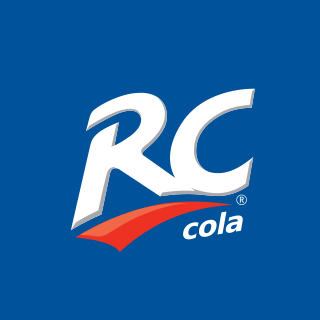
RC Cola is an American brand of cola invented by Claud A. Hatcher in 1905.

OpenCola is a brand of open-source cola whose list of ingredients and preparation instructions are freely available and modifiable. Anybody can make the drink, and anyone can modify and improve on the recipe. It was launched in 2001 by free software P2P company Opencola, to promote their company.
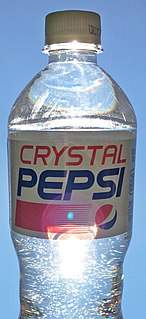
Crystal Pepsi is a clear cola soft drink made by PepsiCo. It was initially released in the United States and Canada from 1992 to 1994. Online grassroots revival efforts prompted brief re-releases throughout the mid-2010s. It was briefly sold in the United Kingdom and Australia.
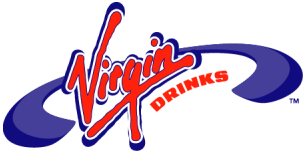
Virgin Drinks was a company that marketed Virgin Cola and Virgin Vodka. It was a subsidiary of the Virgin Group.
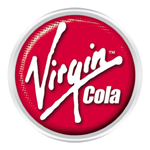
Virgin Cola was a carbonated cola soft drink, launched in 1994. The beverage became popular in the United Kingdom in the late 1990s, and began to outsell Coca-Cola in certain locations, who subsequently created lucrative deals with stockists to sway them from carrying Virgin; causing it to decline and fade into obscurity. By the late 2000s, Virgin Cola was only available in limited locations, and eventually became exclusive to Asda stores as a two-litre bottle. After being discontinued in the UK in early 2009, it still existed overseas for a short time before ceasing existence completely.

Fresca is a grapefruit-flavored citrus soft drink created by The Coca-Cola Company. Borrowing the word Fresca from Italian ,Spanish and Portuguese, it was first introduced in the United States in 1966. Originally a bottled sugar-free diet soda, sugar sweetened versions were introduced in some markets.

OK Soda is a discontinued soft drink created by The Coca-Cola Company in 1993 that courted the American Generation X demographic with unusual advertising tactics, including neo-noir design, chain letters and deliberately negative publicity. After the soda did not sell well in select test markets, it was officially declared out of production in 1995 before reaching nationwide distribution. The drink's slogan was "Things are going to be OK."
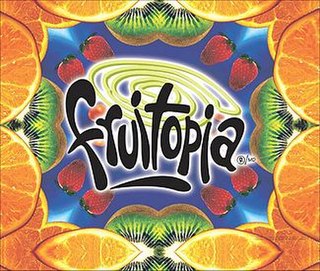
Fruitopia is a fruit-flavored drink introduced by the Coca-Cola Company's successful Minute Maid brand in 1994 and targeted at teens and young adults. According to New York Times business reports, it was invented as part of a push by Minute Maid to capitalize on the success of Snapple and other flavored tea drinks. The brand gained substantial hype in the mid-1990s before enduring lagging sales by decade's end. While still available in Canada and Australia as a juice brand, in 2003, Fruitopia was phased out in most of the United States where it had struggled for several years. However, select flavors have since been revamped under Minute Maid. Use of the Fruitopia brand name continues through various beverages in numerous countries, including some McDonald's restaurant locations in the United States, which carry the drink to this day.

Kas is the brand name of soft drink produced by PepsiCo. It is made in grapefruit, orange (yellow), lemon (greenish-yellow), bitter, and apple flavors. Kasfruit juices are also offered in multiple flavors. Kas is available in Spain, Mexico, Dominican Republic and France, and was available in Portugal, Brazil and Argentina during the 1990s.

Slice is a line of fruit-flavored soft drinks originally manufactured by PepsiCo and introduced in 1984 but discontinued by PepsiCo in North America in the late 2000s. Slice was reintroduced in the United States and Canada as a brand of organic juices by "New Slice Ventures LLC", which acquired the trademark rights in those countries.
Tab Clear was a variation of Tab. It is Coca-Cola's contribution to the short-lived "clear cola" movement during the early 1990s. It was introduced in the United States on December 14, 1992, in the United Kingdom a month later and in Japan in March 1993 to initially positive results. Tab Clear was, however, discontinued after only a short time of marketing in 1994. Unlike most other "clear" soft drinks, Tab Clear contained caffeine and, according to the company, had the flavor of cola.
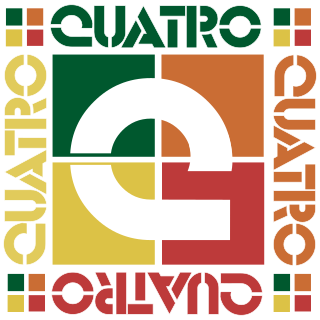
Quatro was a canned, fruit-flavoured carbonated drink produced from 1982 to 1989 in the United Kingdom. From 1983 to 1989 it was commonly available in the UK, though production and sale of the drink ceased there in the mid-1980s. Green in colour, its name derived from the four fruits used: pineapple, orange, passion fruit and grapefruit.
Apotekarnes Cola was a cola-flavoured soft drink produced in Sweden by Pripps/Carlsberg Sverige.
Kick was a citrus-flavored soft drink product by Royal Crown Company, Inc. introduced to the market in 1965.
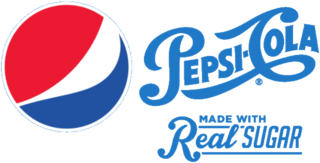
Pepsi-Cola Made with Real Sugar, originally called Pepsi Throwback—and still branded that way in some markets—is a soft drink sold by PepsiCo. The drink is flavored with cane sugar and beet sugar instead of high fructose corn syrup, with which soft drink companies replaced sugar in their North American products in the 1980s. In June 2014, the Pepsi Throwback name was replaced by the current name, which continues to be made without high fructose corn syrup. As of April 2020 it received a new logo. The "throwback" name was also used for a variant of PepsiCo's citrus-flavored Mountain Dew.

Pepsi Next is a discontinued cola-flavored carbonated soft drink produced by PepsiCo. It was a variant of the Pepsi cola range.

Double Seven was an Indian soft drink brand. It was manufactured and marketed by the Indian government after Coca-Cola quit the Indian market in 1977 due to changes in government policies. Double Seven was launched at the annual trade fair at Pragati Maidan, New Delhi as a gift by the then ruling Janata Party.














